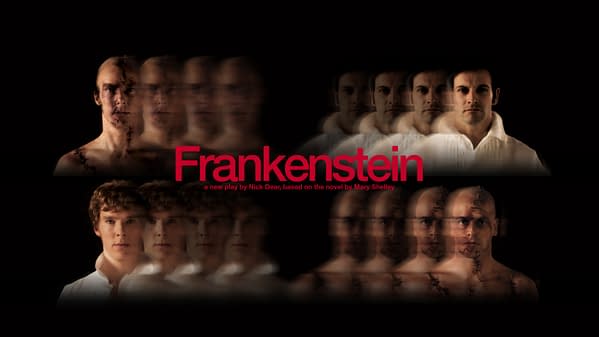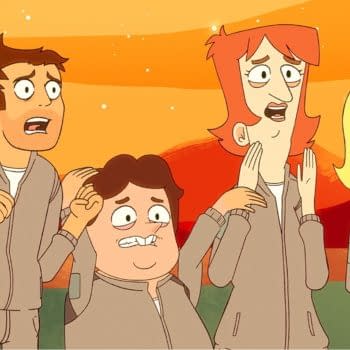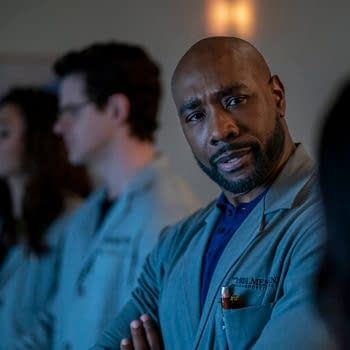Posted in: Review, streaming, Trailer, TV, YouTube | Tagged: benedict cumberbatch, bleeding cool, cable, danny boyle, elementary, frankenstein, jonny lee miller, mary shelley, national theatre, nick dear, sherlock, streaming, television, tv, youtube
Danny Boyle's Frankenstein Proves Most Intense Adaptation Yet: Review
The National Theatre has posted one of its most popular and acclaimed productions in recent years: Danny Boyle's 2011 production of Mary Shelley's Frankenstein. Benedict Cumberbatch and Jonny Lee Miller (two Sherlock Holmes!) play the monster and Frankenstein on alternate nights during its run. Both versions were filmed and should be on YouTube soon. The version with Cumberbatch as the monster was posted first on Thursday this week. The version where Miller plays the monster begins streaming on Friday. Both versions will be available for a week on the National Theatre's YouTube Channel.

The Play Is a Major Edit of the Original Novel
Playwright Nick Dear does not slavishly adapt the book. A 100% faithful adaptation of the book would be unbearable. Most movies and TV adaptations have no trouble adapting the plot. Dear begins the play with the creation of the monster, effectively cutting about the first third of the book. From a screenwriting and adaptation standpoint, that's admirably ruthless and efficient. The first third of the book depicted Victor Frankenstein's whole backstory and motivation as well as philosophical debates. Dear, a seasoned writer of movies, TV series, radio drama on top of plays, hits the ground running here. The play has the fast pace and structure of a 2-hour movie but still retains the character-driven dynamics of a stage play.
Dear's thematic changes make the play a debate with the novel's original themes about Playing God and Original Sin. Dear and Boyle believe the real sin is Frankenstein's neglect and abandonment of the monster to a life of abuse and hatred, which leads to all the tragedy and death that follow. Danny Boyle was a respected director of plays before he moved onto TV and movies and creates a play with the clarity and speed of a movie but the abstract minimalist experimentation of the stage. The art direction and acting are heightened and hyperreal rather than "realistic". As a result, this is one of the most philosophical and emotional versions of the Frankenstein story ever made.
Frankenstein Still Asks Fundamental Question: Who is the Monster, and Who is the Man?
Cumberbatch as the monster may be the most heartbreaking role he's ever played. He plays the monster like an infant still learning to use his limbs. His speech and gestures become more refined but never lose that wild, twitchy otherness of a child. That's what the monster is – a child that was born good but shunned and abused into violence and revenge. He embodies the victim of hatred who begets more hatred in a dark, intolerant world. Victor Frankenstein is a monster of blind ambition, driven by ego. Miller plays him as supremely self-preoccupied while Cumberbatch is more aloof and arrogant. Cumberbatch's monster has an elegant melancholy while Miller's monster carries more raw anger, but is no less moving. To watch Cumberbatch and Miller play off each other in either role is like watching two champion athletes, evenly matched, sparring expertly, evenly matched and utterly electric.
Under Boyle's staging, Frankenstein and the monster become shadow reflections of each other. The scientist all arrogance, cold intellect and ego, the monster all emotion, need and id. The two are forever intertwined in life and death. Cumberbatch and Miller taking turns playing the monster and Frankenstein isn't just a casting gimmick. It expresses the theme of man and monster being interchangeable. This new reading explains why this is one of the great theatrical productions of the 21st Century.













